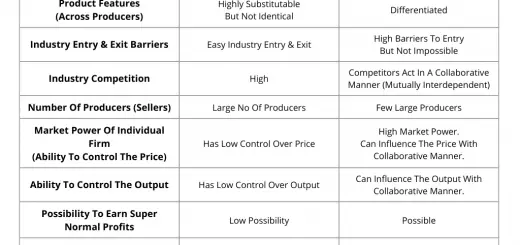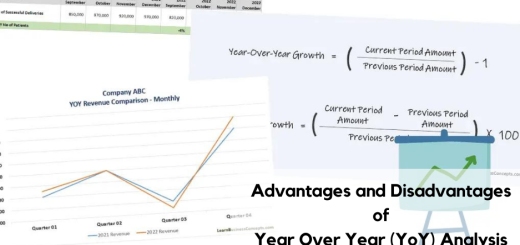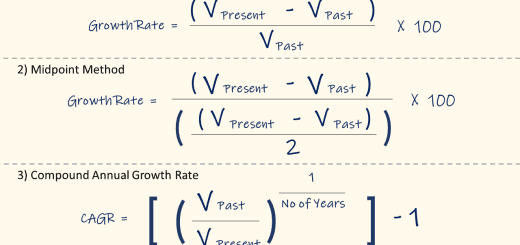Monopoly Market: Definition, Examples, and Characteristics
What is Monopoly
A monopoly is a market structure with a single seller but many buyers. The controlling company (single seller) has entire control of the market, hence this company sets the price and supply of a good or service.
A monopoly describes a market situation where a single company holds all the market share and the company has total control of the prices and output. A monopolist company can raise the price of a product without worrying about the actions of competitors since there is none.
Sources of Monopoly
Following are the sources of monopoly,
- Patents and licenses
- Economies of scale
- The high initial capital required
- Technological barriers to entry
- Control of natural resources
- Legal barriers
- No substitute goods
Examples of Monopoly Market
Following are some real-world examples of Monopoly,
1. Carnegie Steel Company in the United States
Andrew Carnegie invested heavily in the steel industry in 1873 and raise the quality of steel while reducing its price by using technological innovations such as the Bessemer process.
Carnegie Steel Company obtained control over every level involved in steel production which company has almost the entire steel industry in the United States.
You may refer to the below articles for more information:
- Andrew Carnegie – Published By Historycentral.com
- Andrew Carnegie and the Creation of U.S. Steel – Published by Billofrightsinstitute.org
2. Canada Post
Canada Post was the only service available for mail delivery in the domestic-letter market. It was argued that the cost of postal services was increased. But as the sole service available, consumers had to use the service without any choice.
You may refer to the below articles for more information:
- The Burden of the Canada Post Monopoly – Published By Fraserinstitute.org
- Monopoly and the Mandate of Canada Post – Published By criterioneconomics.com
How do Monopoly Cause Market Failure (Negative Effects of Monopoly)
1. Can Result in Scarcity
A single supplier controls the entire supply of a product in a monopoly market. This results in the demand for the product remaining relatively stable despite price fluctuations.
Supply can be restricted to make demand more to keep prices high. But this results in scarcity.
2. Deficiency of Supply & Demand Equilibrium
A monopoly can cause a deficiency of equilibrium between supply and demand.
3. Inefficient and Less Innovative
Since there is no competition, Monopoly firms can become inefficient and less innovative over time.
Characteristics of Monopoly Market
A monopoly market is easily identifiable by certain characteristics as follows,
1. Only a Single Seller is Available
In a monopoly, one seller produces all of the output for a good or service. The entire market depends on a single seller.
2. Very Heigh Barriers to Entry
Markets with monopolies naturally have very high barriers to entry.
3. Profit Maximisation
The monopolistic firm maximizes profits due to no competition. The firm can charge a set price far above the normal in a competitive market.
4. Price Discrimination
The seller can change the price and quantity of the good or service in a monopoly market.
5. Firm is a Price Maker
Since there is only one seller, the sole decision of the price is made by this seller.
Read More:
Market Structures
Monopoly Market
- Real Examples of Monopoly Market (in the USA, Canada, Australia, World)
- Important Characteristics / Causes of Monopoly Market
- Advantages and Disadvantages of Monopoly Market
Oligopoly Market
- Definition, Types, and Characteristics of Oligopoly Market
- Real Examples of Oligopoly Market (in the USA, Canada, World)
- Seven Important Characteristics of Oligopoly Market
- Advantages and Disadvantages of Oligopoly Market
Monopolistic Competition
- Overview, Definition, & Features of Monopolistic Competition
- Main Characteristics / Causes of Monopolistic Competition
- Real Examples of Monopolistic Competition (in USA, Canada, World)
- Advantages and Disadvantages of Monopolistic Competition
Perfect Competition


